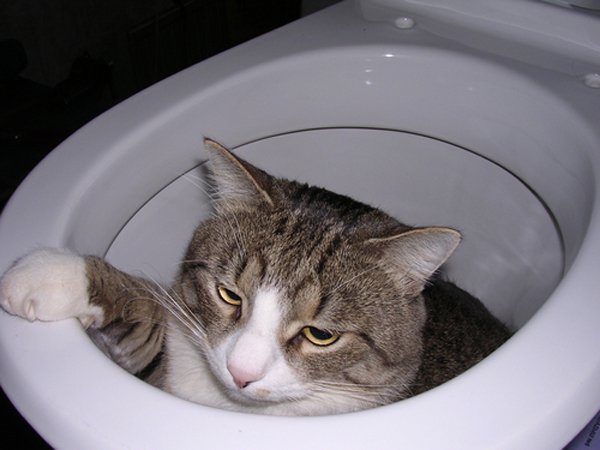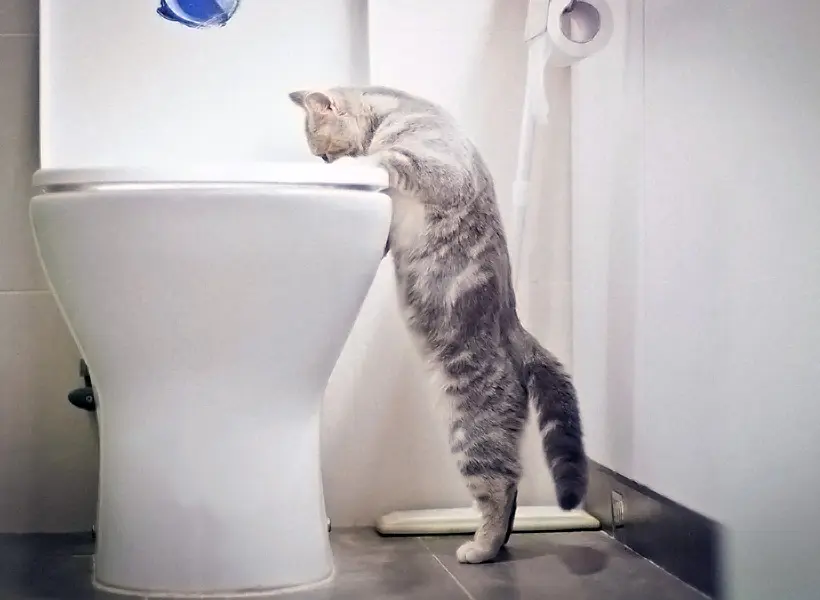Why You Should Avoid Flush Cat Poop Down Your Toilet - Important Information
Why You Should Avoid Flush Cat Poop Down Your Toilet - Important Information
Blog Article
How do you actually feel on the subject of Can You Flush Cat Poop Down The Toilet??

Intro
As pet cat proprietors, it's important to be mindful of how we deal with our feline buddies' waste. While it might seem hassle-free to purge feline poop down the commode, this technique can have destructive consequences for both the setting and human wellness.
Environmental Impact
Flushing cat poop introduces damaging microorganisms and bloodsuckers right into the water supply, posturing a substantial danger to water environments. These contaminants can negatively impact aquatic life and compromise water high quality.
Wellness Risks
Along with ecological issues, flushing cat waste can additionally present health and wellness threats to humans. Pet cat feces may have Toxoplasma gondii, a bloodsucker that can cause toxoplasmosis-- a possibly severe ailment, specifically for expecting females and individuals with weakened body immune systems.
Alternatives to Flushing
Luckily, there are more secure and much more liable means to deal with feline poop. Consider the following choices:
1. Scoop and Dispose in Trash
The most usual technique of dealing with cat poop is to scoop it right into an eco-friendly bag and toss it in the garbage. Be sure to use a dedicated litter scoop and throw away the waste promptly.
2. Use Biodegradable Litter
Choose eco-friendly pet cat litter made from materials such as corn or wheat. These trashes are environmentally friendly and can be safely disposed of in the trash.
3. Hide in the Yard
If you have a lawn, consider hiding cat waste in an assigned area away from veggie yards and water resources. Be sure to dig deep adequate to avoid contamination of groundwater.
4. Set Up a Pet Waste Disposal System
Invest in an animal garbage disposal system specifically developed for feline waste. These systems make use of enzymes to break down the waste, lowering odor and ecological impact.
Conclusion
Responsible pet dog possession prolongs beyond providing food and sanctuary-- it additionally entails correct waste monitoring. By refraining from flushing cat poop down the commode and selecting different disposal methods, we can minimize our ecological footprint and protect human health.
Why Can’t I Flush Cat Poop?
It Spreads a Parasite
Cats are frequently infected with a parasite called toxoplasma gondii. The parasite causes an infection called toxoplasmosis. It is usually harmless to cats. The parasite only uses cat poop as a host for its eggs. Otherwise, the cat’s immune system usually keeps the infection at low enough levels to maintain its own health. But it does not stop the develop of eggs. These eggs are tiny and surprisingly tough. They may survive for a year before they begin to grow. But that’s the problem.
Our wastewater system is not designed to deal with toxoplasmosis eggs. Instead, most eggs will flush from your toilet into sewers and wastewater management plants. After the sewage is treated for many other harmful things in it, it is typically released into local rivers, lakes, or oceans. Here, the toxoplasmosis eggs can find new hosts, including starfish, crabs, otters, and many other wildlife. For many, this is a significant risk to their health. Toxoplasmosis can also end up infecting water sources that are important for agriculture, which means our deer, pigs, and sheep can get infected too.
Is There Risk to Humans?
There can be a risk to human life from flushing cat poop down the toilet. If you do so, the parasites from your cat’s poop can end up in shellfish, game animals, or livestock. If this meat is then served raw or undercooked, the people who eat it can get sick.
In fact, according to the CDC, 40 million people in the United States are infected with toxoplasma gondii. They get it from exposure to infected seafood, or from some kind of cat poop contamination, like drinking from a stream that is contaminated or touching anything that has come into contact with cat poop. That includes just cleaning a cat litter box.
Most people who get infected with these parasites will not develop any symptoms. However, for pregnant women or for those with compromised immune systems, the parasite can cause severe health problems.
How to Handle Cat Poop
The best way to handle cat poop is actually to clean the box more often. The eggs that the parasite sheds will not become active until one to five days after the cat poops. That means that if you clean daily, you’re much less likely to come into direct contact with infectious eggs.
That said, always dispose of cat poop in the garbage and not down the toilet. Wash your hands before and after you clean the litter box, and bring the bag of poop right outside to your garbage bins.
https://trenchlesssolutionsusa.com/why-cant-i-flush-cat-poop/

Hopefully you liked our post on Can You Flush Cat Poo or Litter Down the Toilet?. Thanks for taking the time to read through our article post. Appreciated our write up? Please share it. Help somebody else locate it. Thank you so much for your time invested reading it.
Call Today Report this page